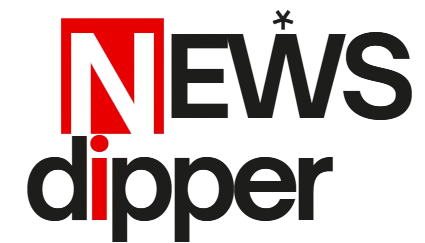In today’s rapidly evolving business landscape, staying ahead means more than just adopting new technologies. It demands a strategic approach that blends agility, cutting-edge AI, and cultural alignment. This is where Digital Transformation Scale Agile Solutions (DTAS) step in — a framework designed to help organizations scale their software development intelligently while navigating the complexities of modern technology and distributed teams. Let’s dive into what makes DTAS an essential game-changer and how it can propel your business forward.
What is Digital Transformation Scale Agile Solutions?
At its essence, Digital Transformation Scale Agile Solutions (DTAS) is a comprehensive delivery framework tailored for organizations aiming to grow their software development capabilities in a scalable, smart way. Unlike traditional agile methods that focus primarily on small teams and incremental delivery, DTAS integrates advanced AI tools, engineering excellence, and a culture that supports experimentation and collaboration across large, often global teams.
This approach goes beyond just adopting agile principles—it embeds AI-powered tooling and continuous learning throughout the entire product lifecycle, ensuring organizations remain both fast and flexible without sacrificing quality or human oversight.
Why Traditional Agile Isn’t Enough Anymore
While agile methodologies revolutionized software development by promoting flexibility, quick iterations, and customer focus, they often fall short when applied at scale in today’s environment. Here’s why:
Complexity: Large enterprises work with multiple teams across different time zones, technology stacks, and product lines.
Rapid Innovation: AI and automation are reshaping workflows, demanding integration with agile practices.
Cultural Alignment: Scaling requires not just processes but aligning diverse teams towards common goals.
Talent Onboarding: New AI-powered tools require fresh training and adaptation, which traditional agile lacks in formalizing.
DTAS addresses these challenges by creating a structured yet adaptive framework that marries technology, culture, and processes for sustainable growth.
Key Components of Digital Transformation Scale Agile Solutions
AI Integration Across the Workflow
DTAS doesn’t just add AI as an afterthought; it weaves AI tools like Copilot, GPT, and Cursor into every stage of product development—from brainstorming and coding to testing and deployment. This enables:
Faster problem-solving with AI-powered assistance.
Smarter automation of routine tasks.
Enhanced code quality through AI-driven reviews and suggestions.
Engineering Best Practices and Quality Assurance
Scalability is only as good as the engineering discipline behind it. DTAS emphasizes:
Consistent coding standards.
Automated testing pipelines.
Continuous integration and delivery (CI/CD).
Robust monitoring to catch issues early.
Culture of Collaboration and Experimentation
True agility at scale demands a cultural shift. DTAS promotes:
Cross-functional teamwork that bridges developers, testers, product owners, and business stakeholders.
Psychological safety encouraging experimentation and learning from failures.
Continuous upskilling and AI readiness training for teams.
Alignment Between Business and Technology
DTAS ensures that technical execution never drifts from business objectives by:
Clear communication channels across all teams.
Transparent metrics linking software delivery to business value.
Regular strategic reviews to adapt roadmaps.
Benefits of Implementing DTAS
Accelerated Innovation
With AI tools integrated deeply, teams can prototype, test, and release features faster than ever, driving competitive advantage.
Resilience in a Complex Environment
DTAS is built to handle complexity—distributed teams, multiple products, and evolving technology—without losing momentum or morale.
Improved Talent Onboarding and Retention
Embedding AI readiness into team structures makes it easier for new hires to adapt quickly and keeps existing staff engaged with continuous learning.
Higher Product Quality
Automated testing and AI-assisted code reviews reduce bugs and improve overall product stability.
How to Adopt Digital Transformation Scale Agile Solutions
Assess Your Current Agile Maturity: Understand your existing workflows, culture, and tech stack.
Invest in AI Tools and Training: Equip teams with AI-powered development tools and invest in upskilling programs.
Create Cross-Functional Teams: Break down silos to enhance collaboration.
Establish Clear Communication Channels: Align business and tech goals via transparent feedback loops.
Embrace Continuous Learning and Experimentation: Encourage innovation with safe spaces for testing new ideas.
Implement Robust Engineering Practices: Ensure quality with automation and monitoring.
Challenges to Watch Out For
Resistance to Change: Transitioning to DTAS can meet cultural resistance. Leadership must champion the change.
Tool Overload: Selecting the right AI tools is crucial to avoid overwhelming teams.
Maintaining Human Oversight: AI enhances productivity but should never replace critical human decision-making.
Balancing Speed and Quality: Rapid delivery must not compromise product integrity.
Real-World Use Cases
Global Software Companies
Many multinational tech firms use DTAS-like frameworks to synchronize hundreds of engineers worldwide, leveraging AI for faster coding cycles while aligning releases with business goals.
Fintech Startups
Fast-growing startups apply DTAS principles to onboard developers quickly and ensure compliance, all while iterating products at breakneck speed.
The Future of Digital Transformation Scale Agile Solutions
As AI continues to evolve, DTAS frameworks will become even more sophisticated, blending machine learning insights with human creativity. Organizations that adopt these solutions today will be better positioned to:
Anticipate market shifts.
Harness emerging technologies.
Build resilient, innovative teams ready for future challenges.
Conclusion
Digital Transformation Scale Agile Solutions represent the next evolution in agile methodology. By seamlessly integrating AI capabilities, engineering excellence, and cultural alignment, DTAS empowers organizations to scale software development effectively in a complex, fast-paced world. It’s not just about doing agile bigger—it’s about doing it smarter, faster, and more humanely. For businesses seeking sustainable innovation and growth, embracing DTAS is no longer optional—it’s essential.
FAQs About Digital Transformation Scale Agile Solutions
1. What differentiates DTAS from traditional agile methods?
DTAS focuses on scaling agile in complex, AI-driven environments with integrated tooling and cultural alignment, unlike traditional agile which suits smaller teams.
2. How does AI fit into DTAS?
AI tools are embedded throughout the workflow to automate tasks, assist coding, and improve quality without replacing human oversight.
3. Can DTAS be applied to non-software industries?
Yes, its principles of scalable agile, AI integration, and cultural alignment can benefit various sectors undergoing digital transformation.
4. What are common challenges when implementing DTAS?
Challenges include cultural resistance, choosing appropriate AI tools, and balancing speed with quality assurance.
5. How does DTAS improve team collaboration?
It promotes cross-functional teams and continuous communication aligned with business goals, enhancing transparency and teamwork.
6. Is continuous learning important in DTAS?
Absolutely, continuous learning ensures teams stay updated with evolving AI tools and best practices, fostering resilience and innovation.

